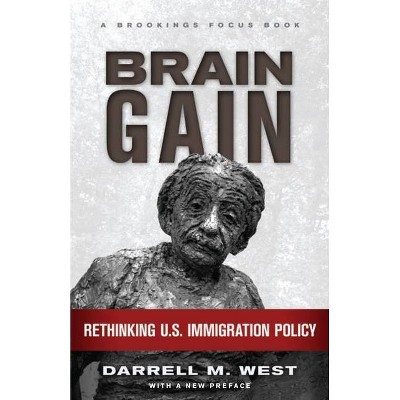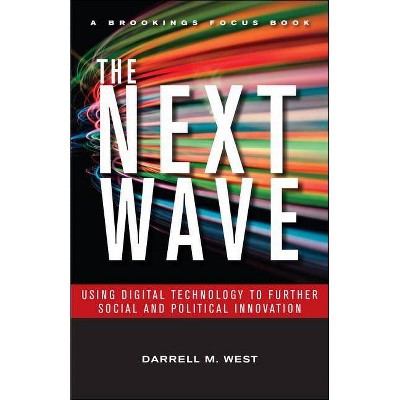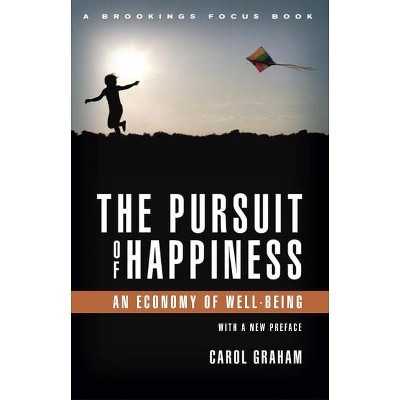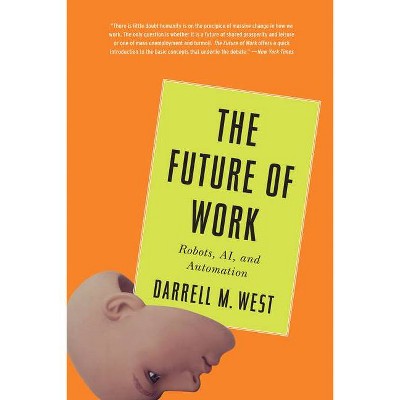Brain Gain - (Brookings Focus Book) by Darrell M West (Paperback)

Similar Products
Products of same category from the store
AllProduct info
<p/><br></br><p><b> About the Book </b></p></br></br><p>Many of America's greatest artists, scientists, investors, educators, and entrepreneurs have come from abroad. Rather than suffering from the brain drain of talented and educated individuals emigrating, the United States has benefited greatly over the years from the brain gain of immigration. These gifted immigrants have engineered advances in energy, information technology, international commerce, sports, arts, and culture. To stay competitive, the United States must institute more of an open-door policy to attract unique talents from other nations. Yet Americans resist such a policy despite their own immigrant histories and the substantial social, economic, intellectual, and cultural benefits of welcoming newcomers. Why?</p> <p>In <i>Brain Gain</i>, Darrell West asserts that perception or vision is one reason reform in immigration policy is so politically difficult. Public discourse tends to emphasize the perceived negatives. Fear too often trumps optimism and reason. And democracy is messy, with policy principles that are often difficult to reconcile.</p> <p>The seeming irrationality of U.S. immigration policy arises from a variety of thorny and interrelated factors: particularistic politics and fragmented institutions, public concern regarding education and employment, anger over taxes and social services, and ambivalence about national identity, culture, and language. Add to that stew a myopic (or worse) press, persistent fears of terrorism, and the difficulties of implementing border enforcement and legal justice.</p> <p>West prescribes a series of reforms that will put America on a better course and enhance its long-term social and economic prosperity. Reconceptualizing immigration as a way to enhance innovation and competitiveness, the author notes, will help us find the next Sergey Brin, the next Andrew Grove, or even the next Albert Einstein.</p><p/><br></br><p><b> Book Synopsis </b></p></br></br><p>Many of America's greatest artists, scientists, investors, educators, and entrepreneurs have come from abroad. Rather than suffering from the brain drain of talented and educated individuals emigrating, the United States has benefited greatly over the years from the brain gain of immigration. These gifted immigrants have engineered advances in energy, information technology, international commerce, sports, arts, and culture. To stay competitive, the United States must institute more of an open-door policy to attract unique talents from other nations. Yet Americans resist such a policy despite their own immigrant histories and the substantial social, economic, intellectual, and cultural benefits of welcoming newcomers. Why?</p> <p>In <i>Brain Gain</i>, Darrell West asserts that perception or vision is one reason reform in immigration policy is so politically difficult. Public discourse tends to emphasize the perceived negatives. Fear too often trumps optimism and reason. And democracy is messy, with policy principles that are often difficult to reconcile.</p> <p>The seeming irrationality of U.S. immigration policy arises from a variety of thorny and interrelated factors: particularistic politics and fragmented institutions, public concern regarding education and employment, anger over taxes and social services, and ambivalence about national identity, culture, and language. Add to that stew a myopic (or worse) press, persistent fears of terrorism, and the difficulties of implementing border enforcement and legal justice.</p> <p>West prescribes a series of reforms that will put America on a better course and enhance its long-term social and economic prosperity. Reconceptualizing immigration as a way to enhance innovation and competitiveness, the author notes, will help us find the next Sergey Brin, the next Andrew Grove, or even the next Albert Einstein.</p><p/><br></br><p><b> Review Quotes </b></p></br></br><br><P>"[West] has helped raise the level of national discussion about this issue to a new, more enlightened level. What he describes as 'the complicated reality underneath the Statue of Liberty story line' is one that every American needs to both understand and think deeply about as we make decisions regarding immigration that will impact our shared future for decades to come."--Vartan Gregorian, President, Carnegie Corporation of New York<br><br><P>"Darrell West gets it right when he frames the need for comprehensive immigration reform as a fundamental element of U.S. competitiveness in the 21st century. "Brain Gain" raises the questions that need to be asked if we truly want a debate about immigration policy that prioritizes the long-term economic development of our country."--Michael Holston, Executive Vice President and General Counsel, Hewlett Packard<br><br><P>"Darrell West understands that more than any stimulus or bailout, the most important step we can take to strengthen America's long-term economic health is passing comprehensive immigration reform. For America to compete in the 21st century, we need to be able to attract--and keep--the world's best, brightest, and hardest working. Everyone knows our immigration system is broken, but West provides the kind of facts and analysis we need to move the issue forward in Washington."--Michael Bloomberg, Mayor of New York City<br><br><P>"Recommend it highly."--Clive Crook, "Financial Times"<br><br><P>"To deal with our fiscal and debt challenges, we need higher, sustained economic growth. A key element in a high growth economic strategy is changing our immigration policies to enhance productivity and innovation. "Brain Gain" provides a roadmap to do just that."--Jeb Bush, former Governor of Florida<br><br><P>"Recommend it highly." --Clive Crook, "Financial Times"<br><br><P>"The diminishing lead of the U.S. in innovation is not a speculation about the future, it is a fact, and immigration policy is an important reason. I've been reading West's new book on the problem, "Brain Gain".... [I] recommend it highly." --Clive Crook, ft.com (Financial Times blog)<br><br><P>"At a time when so much heat, rather than light, is being generated around the issue of immigration, "Brain Gain" is an invaluable work that as dispassionately, factually, and objectively as possible analyzes the political and economic aspects of immigration and their effect on our nation. Writing with a level of thoughtfulness and intellectual rigor missing from the current debate and informed by rich sources of data, Darrell West tackles the question of why, despite so much evidence that immigration brings substantial economic, intellectual and cultural benefits to the U.S., immigration policy has been so difficult to resolve. In doing so, he has helped raise the level of national discussion about this issue to a new, more enlightened level. What he describes as "the complicated reality underneath the Statue of Liberty story line" is one that every American needs to both understand and think deeply about as we make decisions regarding immigration that will impact our shared future for decades to come." --Vartan Gregorian, President, Carnegie Corporation of New York<br><p/><br></br><p><b> About the Author </b></p></br></br><p> <b>Darrell M. West </b>is vice president and director of Governance Studies at the Brookings Institution. Among his seventeen previous books are <i>Digital Government: Technology and Public Sector Performance</i> (Princeton, 2005) and <i>The Next Wave: Using Digital Technology to Further Social and Political Innovation</i> (Brookings, 2011).</p>
Price History
Cheapest price in the interval: 22.99 on November 8, 2021
Most expensive price in the interval: 22.99 on December 20, 2021
Price Archive shows prices from various stores, lets you see history and find the cheapest. There is no actual sale on the website. For all support, inquiry and suggestion messages communication@pricearchive.us




















